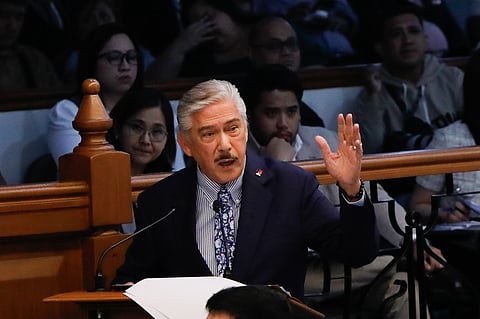
- NEWS
- the EDIT
- COMMENTARY
- BUSINESS
- LIFE
- SHOW
- ACTION
- GLOBAL GOALS
- SNAPS
- DYARYO TIRADA
- MORE

Senate President Vicente "Tito" Sotto III on Monday, 29 September, clarified that amendments or insertions, whether individual or institutional, done during the deliberations in the Senate, are part of the regular budget process.
"It is unfortunate that the issue on ghost projects and failed flood control projects affects and generalizes all amendments as illegal or improper," Sotto said in a statement.
"Some of these amendments are for additional classrooms, farm-to-market roads, and bridges that will benefit our people, especially those in the far-flung provinces. Some of which were never funded and were tagged 'for later release'," he added.
Sotto assured that for the 2026 budget, the Senate will institute changes for greater transparency, people’s participation, and accountability.
Meanwhile, Senator JV Ejercito likewise stressed that "not all amendments are bad," especially those that help agencies and departments.
"One of our tasks is to introduce amendments after the budget hearings to support and further improve programs and projects," Ejercito said.
"Amendments are not tainted as long as there is no post-enactment intervention."
Sotto and Ejercito made the clarification after Senate President Pro Tempore Panfilo "Ping" Lacson on Sunday disclosed that at least P100 billion worth of items were inserted by "almost all" senators in the 19th Congress in the General Appropriations Act.
Lacson stressed that while insertions or amendments per se are not necessarily illegal, they are questionable, especially if individual insertions amount to P5 billion or even P9 billion.
Such insertions could threaten the economy because the withheld or diverted funds could have gone to infrastructure programs that were planned and vetted at the barangay, city, and regional levels, he said.
